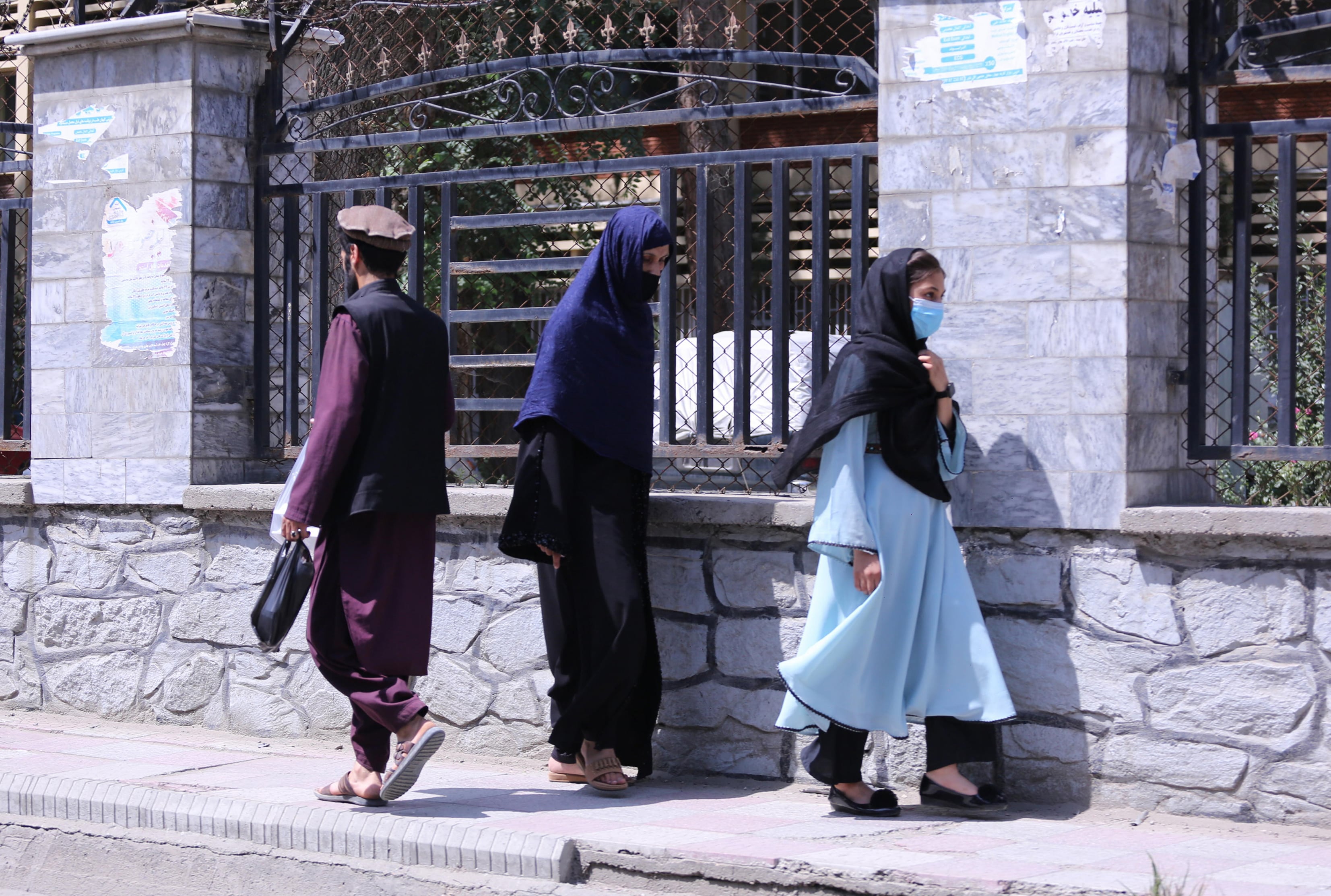Spain leaves Afghan’s reception to those who granted a humanitarian visa | Spain

Hamida Sultani is a 31 -year -old Afghan, threatened with death by the Taliban who govern her country. On April 13, this woman arrived at Madrid-Barajas airport With a humanitarian visa of the Spanish Embassy in Pakistanbut without this legation delivering a copy of the resolution that establishes that the Government sponsors the transfer of its owner to Spain. That role, which is usually delivered with the visa, allows the immediate inclusion of its beneficiary in the reception system upon reaching Spain and allows you to access accommodation and maintenance while your asylum application is resolved. Without that document, Sultani was abandoned to his fate in Barajas. If it had not been for the Afghan journalist Khadija Amin – who has welcomed her in her home 24 days – she would have stayed on the street. This newspaper asked the Foreign Ministry for this case. Hours later, Amin was told that his compatriot had an assigned place in a reception center, in which he entered this Tuesday.
This Afghan has not been the only to which Spain has authorized to travel to its territory without later integrating it into its reception system, in itself modest compared to that of other European countries. Only two of the organizations that support Afghas who try to obtain international protection – which presides over Amin, hope of freedom, and Netwomening – are at least seven similar cases only in the last three weeks. Both NGOs assume that it can be many more.
The day after the arrival of Sultani, two other Afghas arrived in Barajas in identical circumstances and also ended up lodged by Amin, herself a refugee who also does not have plenty of resources.
On April 27, another four landed, also without automatic protection, although their case is something different. To those four women – a parliamentarian of the previous Afghan regime and three relatives – the Spanish embassy in Iran denied the visa. Then he had to rectify by decision of the National Court, within the framework of a contentious-administrative appeal against that decision presented with the help of Netwomening. The Court then issued precautionary measures for which it ordered the Spanish legation to transfer these four women to Spain.
Although those four Afghan informed the embassy of their trip, says María López, vice president of Netwomening, does not « have managed their reception in the International Protection program » and have ended at a relative’s house.
Like the other three Afghan, they have not « given an appointment to request asylum. » The official argument is that these people who arrive in Spain without the copy of the transfer resolution or thanks to precautionary measures, have to enter the country and then make an appointment to request international protection in the telephone numbers destined for it from the foreigners offices.
That procedure would be simple if it were not because those numbers are collapsed and it is practically impossible to contact them. In the improbable case that someone responds –There are applicants who have called 8,000 times in one day-, appointments are delayed months. Meanwhile, the applicant is outside the reception system and runs the risk of his visa – that of the Afghan is usually 90 days – expires, which would leave him in an irregular situation. According to the refugee aid (CEAR) commission, 167,366 people requested international protection in Spain in 2024.
María López fears that the successive obstacles facing these women « discourage them to ask for protection in Spain and to see their rights guaranteed. » When they denied them visas They or their relatives, or by leaving Afghan’s reception system to those who have granted the transfer to Spain.
This lawyer remembers the story of a widow Hazara – a ethnicity pursued by the Taliban – with two children, whose husband was already murdered who the Spanish legation in Pakistan « denied him the visa because he had not yet presented the certificate of death of the husband. » A law firm that collaborates with Netwomening resorted to the decision and presented that document, but the embassy « has not yet responded. »
López cites another situation. That of Afghan women who have been waiting for years at the Spanish diplomatic headquarters. And quot another case; The one of a blind prosecutor That has been waiting for it for three years. This woman now subsists « in a tent in Islamabad. Pakistan is now deporting Afghanas, with the consequent risk of being killed by the Taliban in their country. Especially if they have exercised a position of power or in the judicial system.
« The embassies denounce visas to women or their relatives, sometimes without explaining the reasons, as is the case in the Spanish embassy in Iran. Then they do not respond to replacement resources, as in the legation in Pakistan, and force women to resort to expensive resources in the National Court, » continues this jurist. This requires “finding an office (of lawyers) and a procure service, which is beyond the reach of most of them. If those professionals do not work Pro bonus (Free), as we do in Netwomening and in some law firm, they remain helpless, « he emphasizes. » Then the government fills her mouth saying that we are next to Afghan women, « says María López.
Sources from the Foreign Ministry responded to this newspaper pointing out that “the Government of Spain has continuously supported Afghan women since the fall of Kabul’s legal government in August 2021, supporting and promoting resolutions in the Human Rights Council, increasing humanitarian aid, and the mandate of the special rapporteur on Afghanistan of the UN, among others”
In addition “of the evacuation of more than 4,000 officials and their families, Spanish embassies in Pakistan, Iran and Turkey have authorized the transfer to Spain of up to 2,000 people in search of international protection. More than 700 of them are judges, prosecutors, defenders of human rights or journalists, whose physical integrity was in danger in Afghanistan,” says the response sent to El País.
Persecution just for being a woman
The sources underlined other government initiatives before the International Court of Justice and the International Criminal Court so that the Taliban pays accounts. They did not explain, however, why the Administration is leaving some Afghan reception, or why women of that nationality that request it in Pakistan and Iran are denied.
A judgment of October 4 of the Court of Justice of the European Union dictates that any Afghan, only for its sex, should benefit from international protection for being subject to « acts of persecution » by the Taliban. The Court mentioned some of the more than hundred edicts approved by the fundamentalists from their return to power in August 2021, which prohibit the Afghas study from 12 yearswork, travel alone, obtain documents without permission from a male, choose your clothes or even look at the windows.
Netwomening, requires its vice president, has helped at least ten Afghans to resort to administrative route the denial of its visas for Spain. If these resources are not resolved shortly, they will be forced to go to the National Court. Of these, López emphasizes, three are after that judgment of the TJUE. This lawyer says he knows other cases.
Of the seven cases of Afghan already in Spain cited, of which this newspaper has been aware, only Hamida Sultani has been resolved. Of the remaining six women who have not been included in the reception system, two have left to France, Amin explains – where they cannot request asylum because they must do so in the country of arrival, Spain – and the other four remain without an appointment to request asylum.







